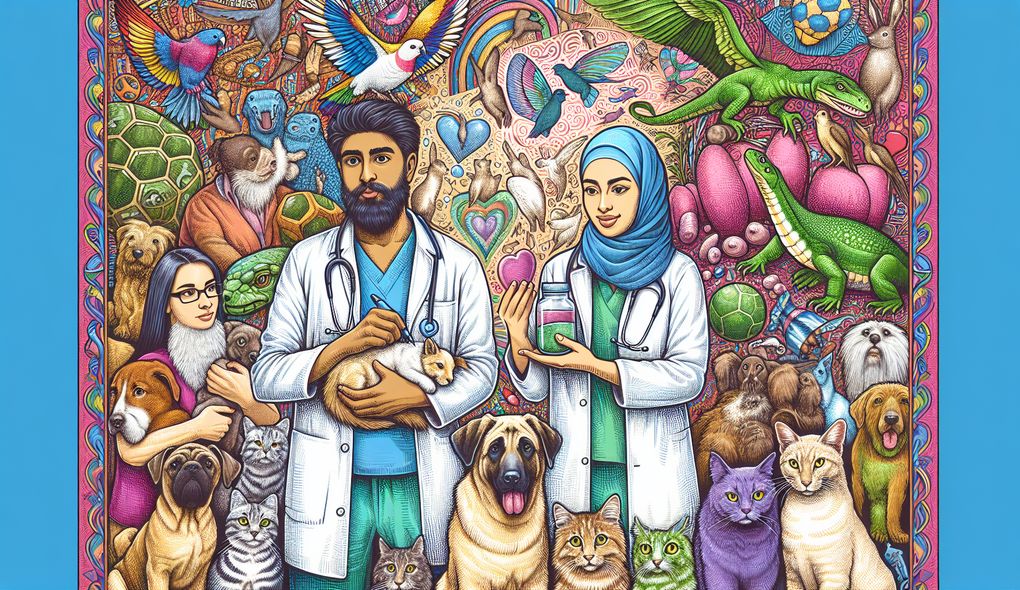How do you ensure that all your research complies with ethical regulations and animal welfare standards?
SENIOR LEVEL

Sample answer to the question:
In my research, I always prioritize ethical regulations and animal welfare standards. I ensure compliance by following strict protocols and guidelines set forth by regulatory bodies. For example, I obtain ethical approval from the relevant committee before starting any research involving animals. I make sure that the animals in my care receive proper housing, nutrition, and medical attention. I also take steps to minimize any potential harm or distress to the animals, such as using non-invasive techniques whenever possible. Additionally, I keep detailed records of all procedures and treatments to ensure transparency and accountability. Overall, I understand the importance of upholding ethical and welfare standards in research involving animals.
Here is a more solid answer:
Ensuring compliance with ethical regulations and animal welfare standards is of utmost importance to me in my research. To achieve this, I actively stay updated with the latest guidelines and regulations set by relevant authorities, such as the Institutional Animal Care and Use Committee (IACUC) and the Animal Welfare Act. Before commencing any study involving animals, I ensure that the research protocol is approved by the IACUC, demonstrating my commitment to ethical research practices. I provide a well-maintained and appropriate environment for the animals, addressing factors such as temperature, lighting, ventilation, and sanitation. I also closely monitor their welfare throughout the study, conducting daily observations and assessments. If any signs of distress or illness are observed, I take immediate action to alleviate their discomfort or seek veterinary care. I document all procedures and treatments in detail to maintain transparency and accountability. By adhering to these practices, I ensure that my research not only yields valuable results but also protects the well-being and welfare of the animals involved.
Why is this a more solid answer?
The solid answer demonstrates a deeper understanding of the candidate's knowledge and experience in ensuring compliance with ethical regulations and animal welfare standards. It includes specific details about staying updated with guidelines, obtaining protocol approval, providing appropriate environments for animals, monitoring their welfare, and maintaining transparency and accountability. However, it could further emphasize the candidate's expertise and skills in conducting ethical research involving animals.
An example of a exceptional answer:
As a dedicated researcher, I prioritize the highest standards of ethical compliance and animal welfare in all aspects of my work. I have a thorough understanding of the ethical regulations and animal welfare standards set by regulatory bodies, such as the National Institutes of Health (NIH) and the American Veterinary Medical Association (AVMA). In my previous research projects, I have obtained ethical approvals from relevant committees, ensuring that my studies involving animals are conducted ethically and responsibly. To ensure the well-being of the animals under my care, I implement a comprehensive approach. This includes providing superior housing facilities with appropriate environmental enrichment, optimizing nutrition based on species-specific requirements, and employing refined techniques to minimize pain and distress. I closely work with veterinary professionals and animal care staff, engaging in regular discussions to address any concerns or improvements in animal welfare. I actively contribute to the scientific community by publishing my research findings in peer-reviewed journals, allowing other researchers to validate and build upon my work. Furthermore, I actively participate in conferences and workshops focused on ethics in research, further enhancing my knowledge and skills in this area. By consistently adhering to these practices, I strive to not only meet but exceed the ethical and animal welfare standards set by the scientific community.
Why is this an exceptional answer?
The exceptional answer demonstrates an extensive understanding of ethical compliance and animal welfare standards. It includes specific details about the candidate's expertise in obtaining ethical approvals, providing superior housing facilities, optimizing nutrition, employing refined techniques, collaborating with veterinary professionals, contributing to the scientific community through publications, and continuously enhancing knowledge and skills through conferences and workshops. It showcases a commitment to exceeding ethical and welfare standards in research involving animals.
How to prepare for this question:
- Familiarize yourself with the regulations and guidelines set by relevant authorities, such as the Institutional Animal Care and Use Committee (IACUC) and the Animal Welfare Act.
- Stay updated with the latest advancements and debates in the field of animal research ethics.
- Highlight any previous experience or projects that involved ensuring compliance with ethical regulations and animal welfare standards.
- Develop a strong understanding of animal anatomy, physiology, and behavior to better assess their welfare and implement appropriate care measures.
- Consider ethical dilemmas and potential conflicts that may arise in veterinary research, and be prepared to discuss your approach to resolving them.
What are interviewers evaluating with this question?
- Ethical compliance
- Animal welfare
- Understanding of regulations

